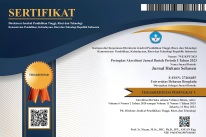Position Of Operational Cooperation (KSO) Made Without Notary Deed In Civil Law System And How Responsible Towards Third Parties
Abstract
Operational Cooperation (KSO) is a breakthrough concept in the economic sector that has both positive and negative impacts on business and economic activities in Indonesia. However, the concept of KSO itself still has many shortcomings, one of which is the lack of clear regulations governing KSO. This research discusses the legal standing of Operational Cooperation (KSO) within Indonesia’s civil law system. The study employs a normative juridical method through literature review, addressing two main research questions: (1) What is the legal position of a KSO established through a cooperation agreement within Indonesia’s civil law system? (2) What are the liabilities of a KSO established based on its cooperation agreement? The findings indicate that a KSO, despite not having legal entity status but being formed through a cooperation agreement, cannot be considered a legal subject within Indonesia’s civil law system. Furthermore, a KSO established without a notarial deed remains legally valid and binding as long as it meets the contractual requirements stipulated in Article 1320 of the Indonesian Civil Code (KUHPerdata). Even without a notarial deed, the parties involved remain personally liable for the obligations stated in the agreement. This study highlights and emphasizes the fundamental legal basis for the establishment of a KSO and its liabilities towards third parties.
Downloads
Copyright (c) 2025 Bimo Atidhiro Pambudi, Dyah Ersita Yustanti

This work is licensed under a Creative Commons Attribution-ShareAlike 4.0 International License.






